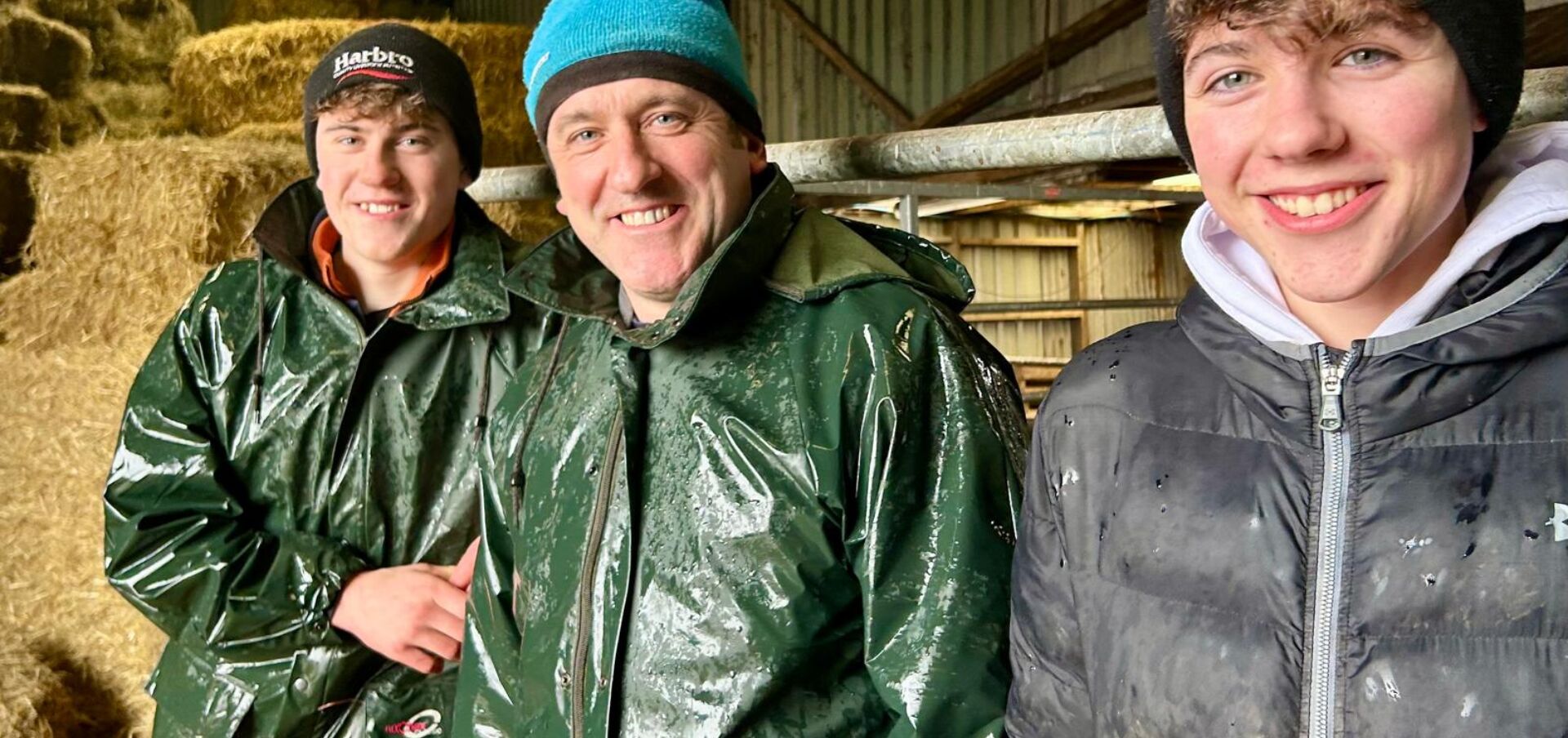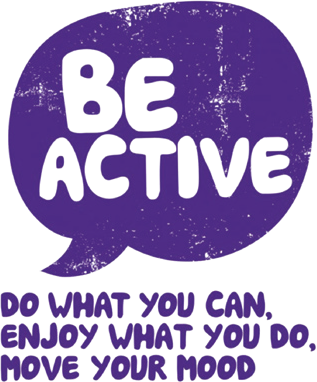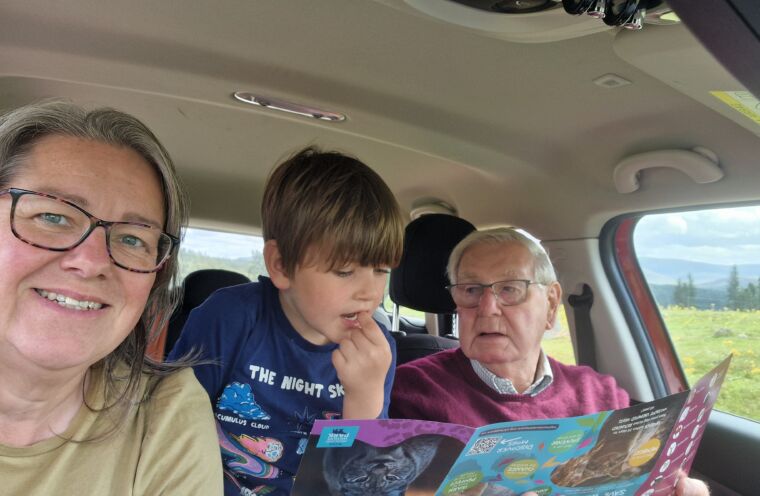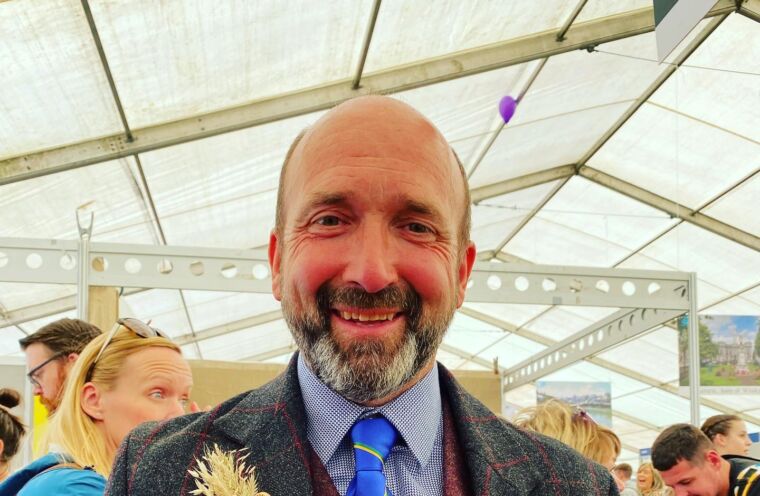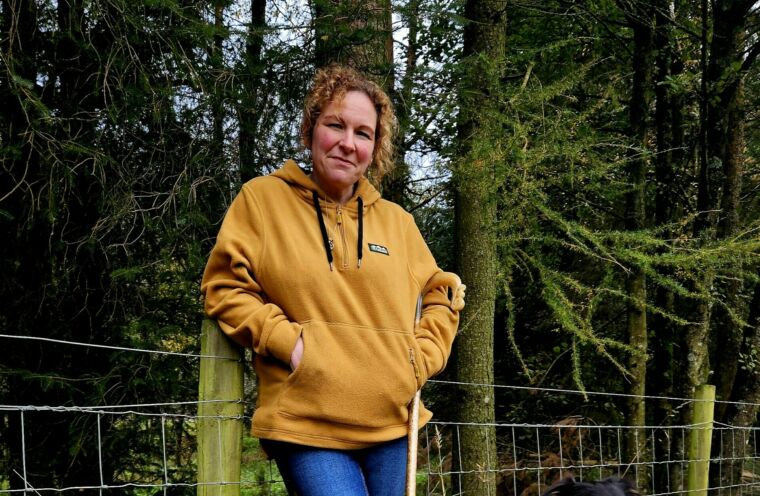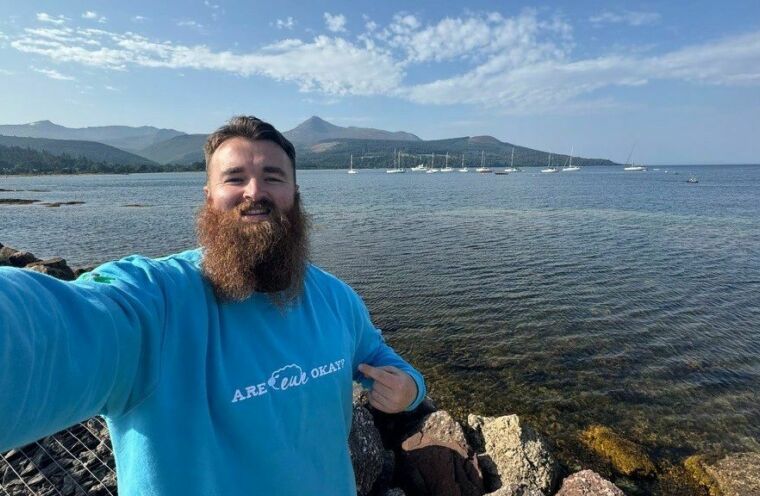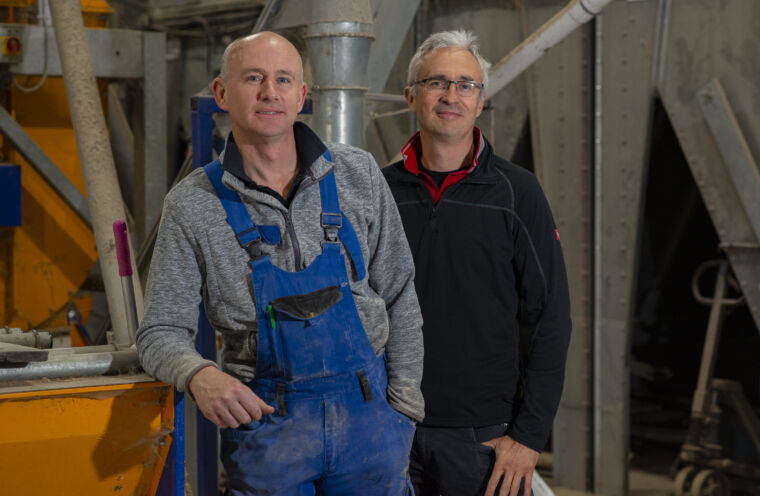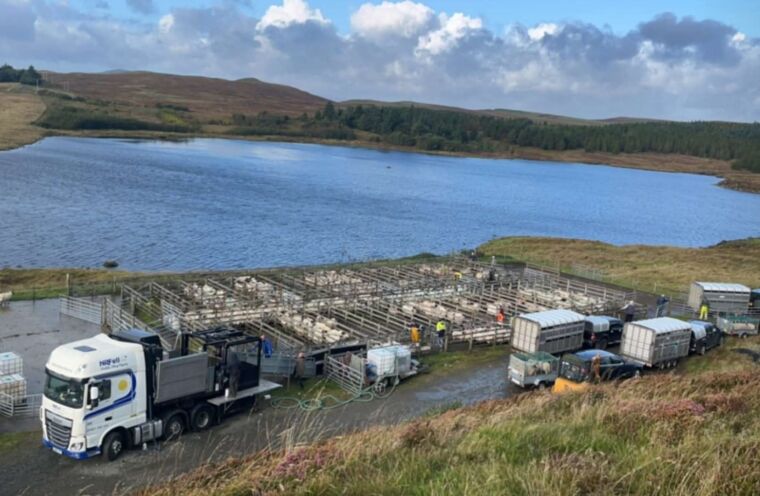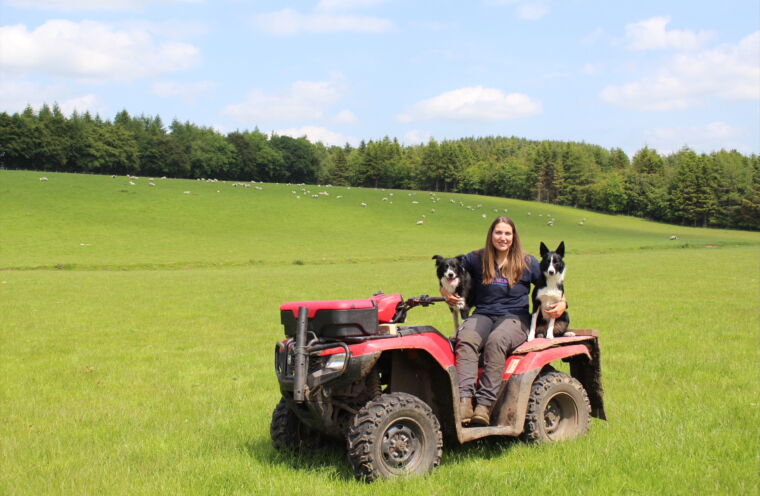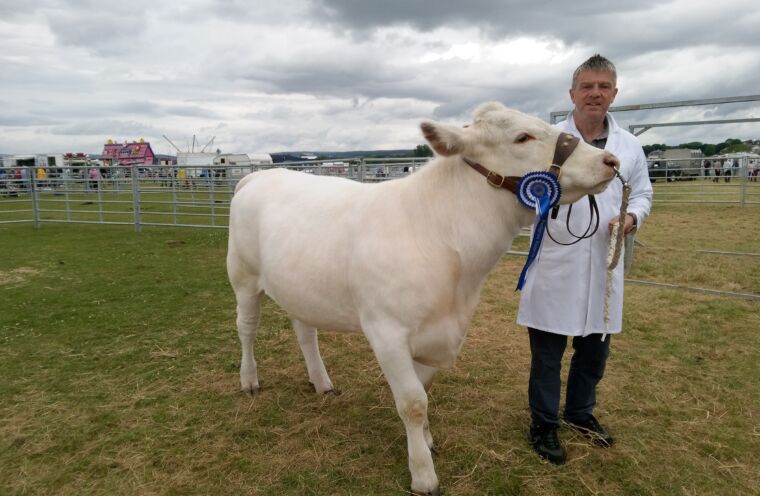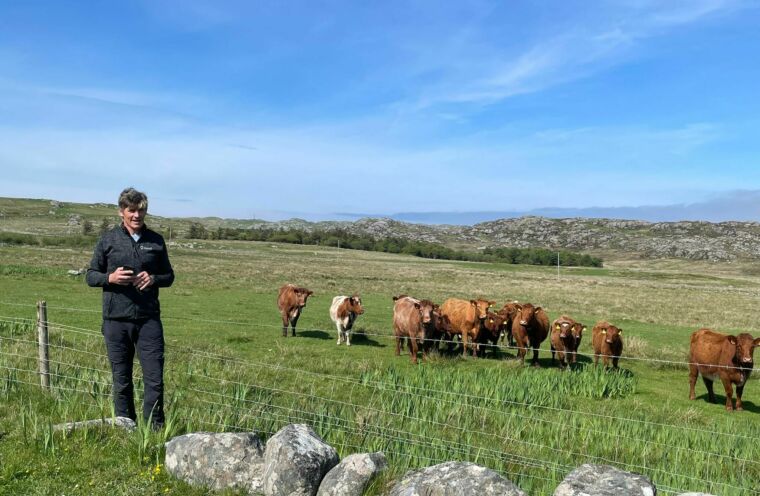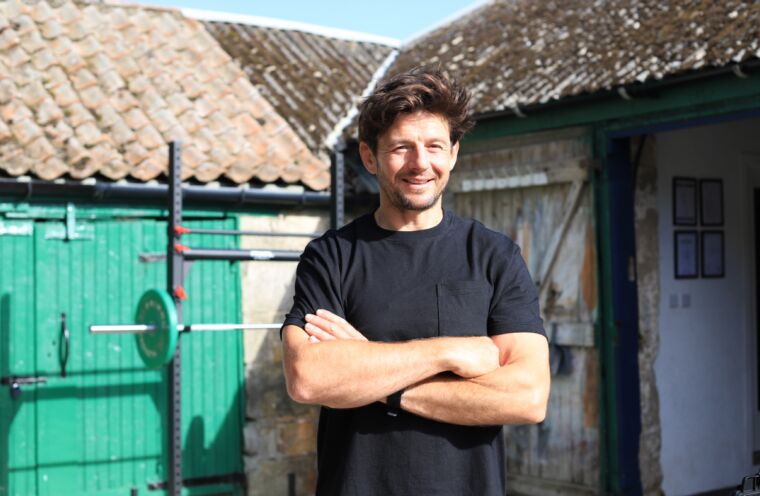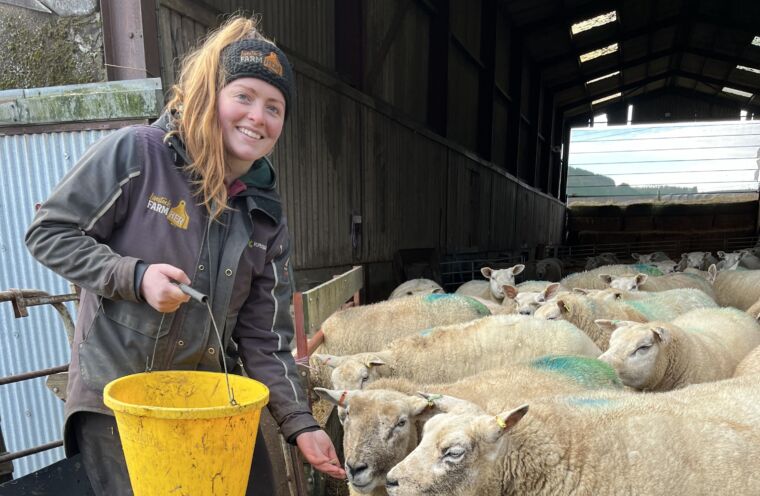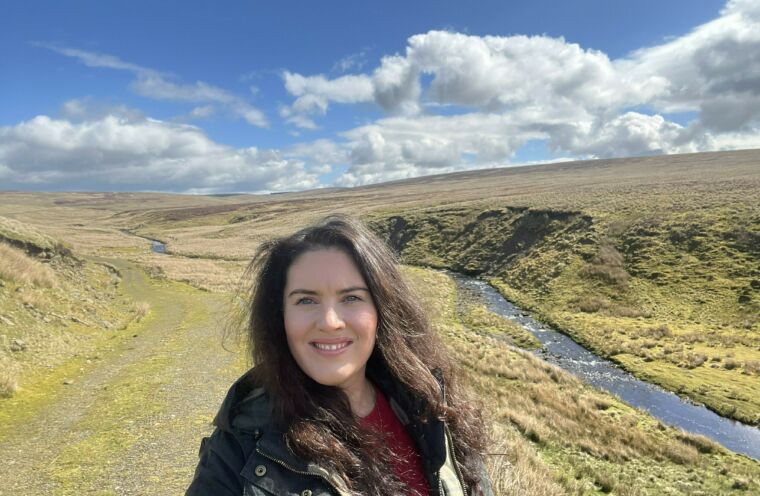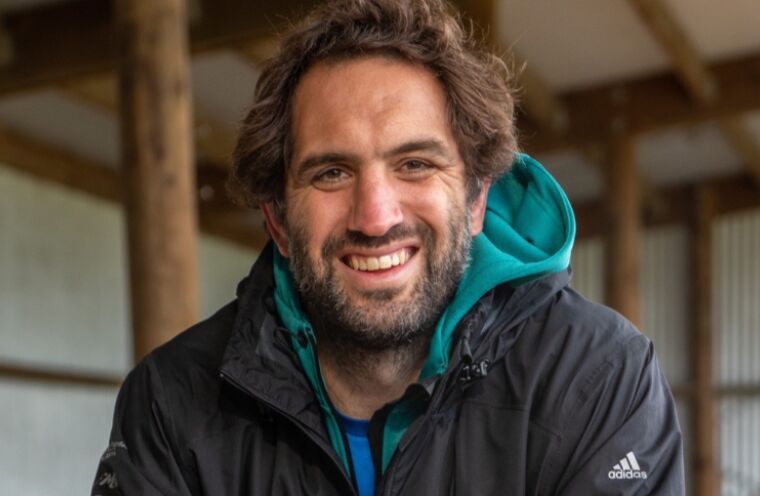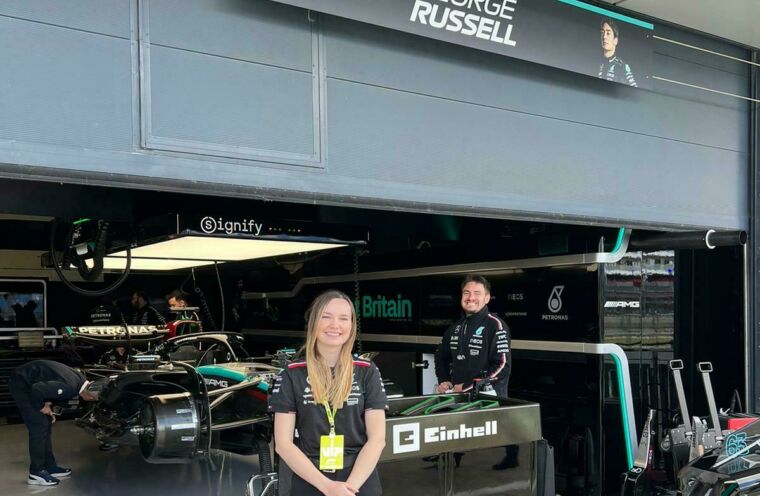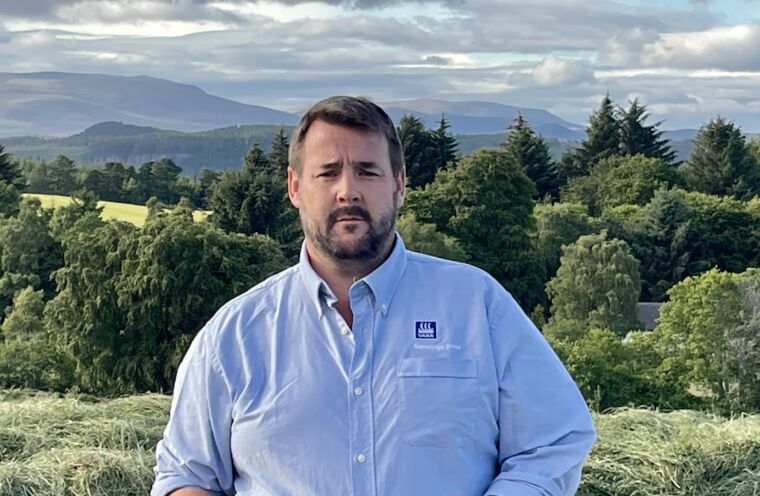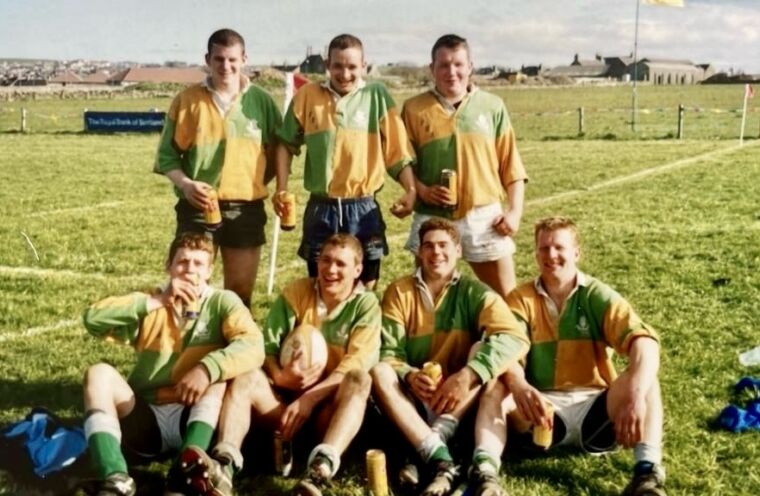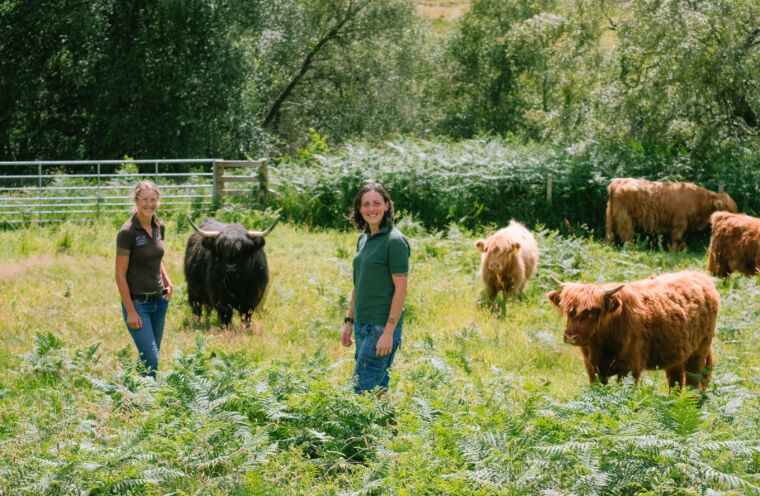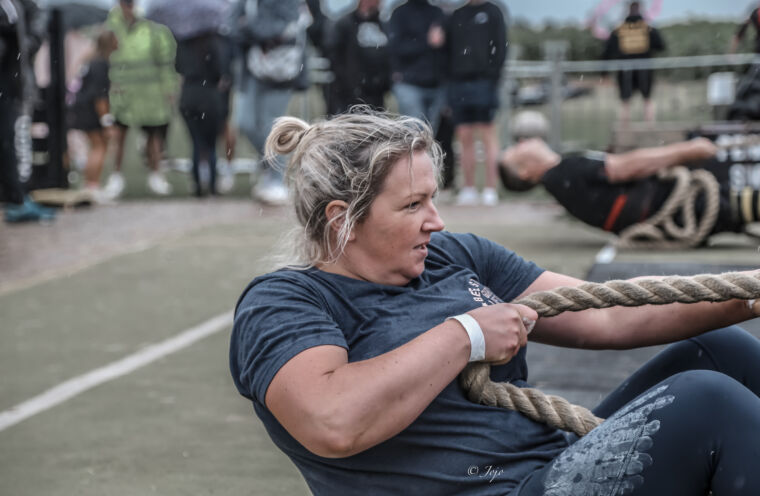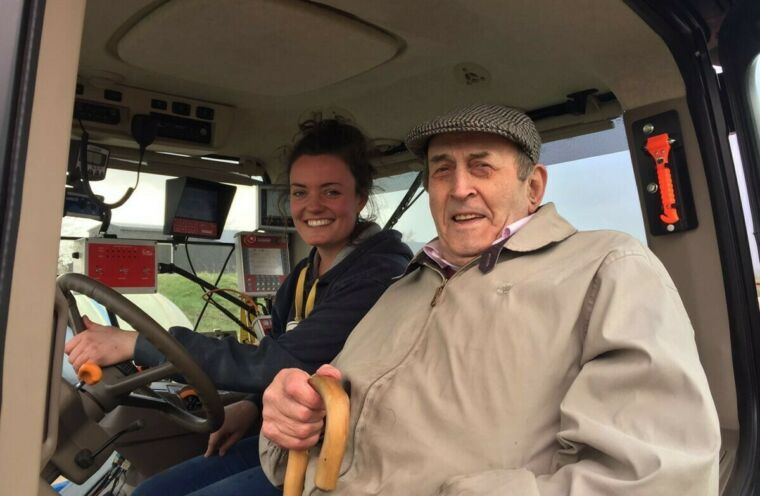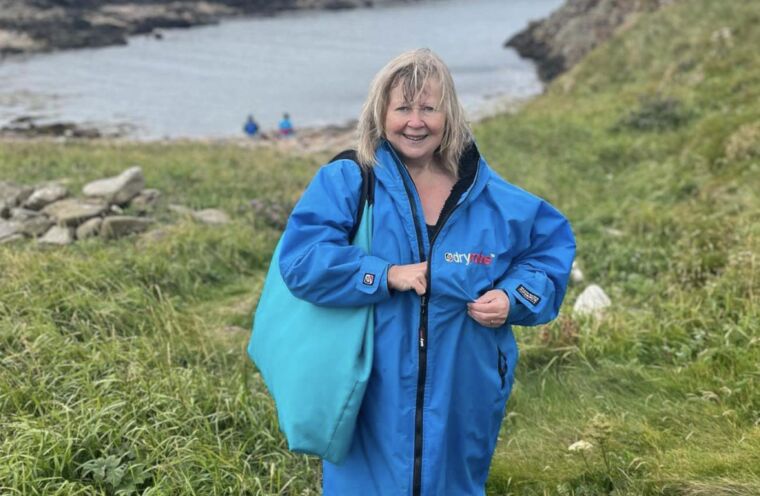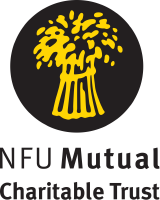John MacInnes (pictured centre, above) farms on Iona, one of Scotland's most remote islands. Isolated? Not if he can help it. John has built several lifelines to stay connected - and they're simpler than you might think.
A sixth-generation farmer at Culbhuirg Farm on Iona, John, his wife Joanne and their two sons Cameron (20) and Jamie (17) farm 150 Blackface and 230 Mule ewes, and 30 Limousin cross cattle across 550 acres.
There's no doubt island life presents its challenges. Secondary-school aged children go off to school on the mainland all week, and with a population of just 170 it would be easy to imagine life can get lonely.
But John isn't accepting isolation as inevitable. While he doesn't claim to have a formal plan, he's aware that having good wellbeing and staying connected matters.
"You hear so much about how important it is, especially in the farming industry," he says. That awareness means he makes sure he gets off the farm regularly, speaks to peers as often as he can, and turns up for weekly island golf sessions on the local 18-hole course – which happens to be right at his back door.
Stay connected, on and off the farm
“As well as farming, I'm Trade Stand Manager at AgriScot. Between the event itself, which is the networking highlight of the year for me, and all the meetings - in-person, online, phone calls - I'm connecting with lots of people in the industry, every week. It gives me a different perspective, keeps me engaged.
“But even when I’m busy farming on Iona, I find ways to keep my social wellbeing quite strong. I’ve seen me clipping sheep at the roadside and American tourists stopping to find out what we’re doing. The wool gets sold in the Iona Craft Shop, so it’s a great story to tell the visitors and gives a real sense of pride. Just having that connection and positivity can turn around a bad day or week.”
John admits he's not great at switching off his phone. 'If I can take a work call while I'm out on the farm and answer someone's question, I feel I'm being more efficient,' he says. He welcomes those signal blackspots when fencing in the hills but knows when the phone really matters - when he needs to pick it up and call his friends.
“If something has happened on the farm, we’ve lost a calf, say - speaking to others who get it really helps. They’ve likely had a similar experience through the year and can relate to how I feel. Without those conversations, it’s easy to start thinking it’s something I’ve done wrong. When I’m having those tough times, it’s important to hear I’m not the only one, so I’ll give someone a call or drop them a quick message.”
“Sometimes it’s not even a call about work or farming that I need. I’ve seen me picking up the phone to some of the AgriScot team and just chatting about football results or something else completely unrelated to farming. That helps too,” he explains.
Find out what works for you
John is equally aware of how exercise benefits wellbeing, but a spontaneous approach suits him better than grand plans. “We built a gym shed in the back garden, and sometimes on a Sunday evening I’ll announce big plans of fitness sessions for the week ahead.
“In reality, by Wednesday, those plans have been knocked down the list of priorities, and then I end up feeling guilty. So, I prefer smaller sessions when I can fit them in.
“I think that’s how looking after wellbeing fits me best, small steps as and when. A lot of it is subconscious while I’m doing it – it’s not until I think about it afterwards, I realise it helped clear my head. It’ll be different for everyone – some people probably prefer a more structured approach but do whatever works best for you.”
The weekly golf sessions are a perfect example of John’s approach. Every Sunday through winter, John and around 11 others meet to play on Iona’s 18-hole natural course as the ‘Honourable Company of Iona Golfers’ (HCIG) - a playful nod to Muirfield's Honourable Company of Edinburgh Golfers after some members visited on holiday. While it’s a regular fixture, he still has to make the choice to show up - even when he's tempted to skip it.
“My wife will say, you should go - think how much you enjoy it every time,” he says. “And she's right. Even if the golf's bad, the company's good! You meet up with the boys, hear about what's going on in their lives, talk about things that have nothing to do with farming. You always feel better afterwards.”
A change of scenery is good for everyone
As well as the increased sense of connection John gets from his off-farm role, having that as a reason to step away from the farm every so often is a big boost too. “Jobs on the farm are more of a family team effort now the boys are grown up. It gives us all more time for other priorities, and we’ve become better at doing things we enjoy,” explains John.
“The time of year that AgriScot starts ramping up and takes place fits perfectly with our system now that we have pushed back our autumn calving, allowing me the time to concentrate on the event. It’s a balancing act but I’m lucky that I find both jobs a pleasure to do – however, I do think that’s a result of having them both, and one giving a needed break from the other.”
But it’s not just John who now feels the benefit of an off-farm job. “Joanne also works for Iona Craft Shop, which she started mostly for her social wellbeing, so that she could feel part of a team and have that interaction and network to bounce off when she needs it,” says John.
Make time for each other
Looking ahead helps John’s wellbeing too. With both sons interested in farming and openly discussing succession in the house, John admits it doesn’t loom as a source of stress. “The boys are at that age where they’re young and hungry with loads of good ideas. Watching them take on more responsibility – that’s exciting, not scary. I am really looking forward to seeing what the next chapter looks like for us here and across the Islands.”
But perhaps the most important connection point is the one closest to home. John credits his wife Joanne - who's not from a farming background - with helping the family get better at simply spending time together.
“Joanne instigated the idea, fresh eyes and all that, but to be fair I've embraced it,” he says. “We've become quite good at making time for each other, even when things are busy.
“Recently Jamie was only home briefly after a concert in Oban. I didn't really have time for golf, but we squeezed in seven holes before dark. Just checking in with my boy - it was so good for both of us.
“We can be bad as an industry for saying we don't have time. Sometimes we just need to tweak how we manage our time ever so slightly.”
It's advice that sums up John's approach: wellbeing doesn't always require grand plans, just small, deliberate choices to stay connected…
Farmstrong Scotland held a Blether Together Live at AgriScot 2025 and for the first time recorded the conversation as a podcast which you can listen to here! Host Sarah Stephen chatted with representatives of SAYFC discussing what makes them function well and feel good.
Trio and tested tips from John:
- I'm not meticulous about planning wellbeing activities, but when I know I need something - a golf round, a chat with a friend, time with the family - I'll tweak my plans to make it happen. The benefits always outweigh what I had to shift.
- If I'm having a bad day, I'll phone a friend - sometimes to talk about the problem, sometimes just to chat about football or life. Either way, I feel better afterwards. Reach out when you need to – the other person probably needs it too.
- Get off the farm regularly. Whether it's a trip away for the day, or just going to the local village, breaking the routine and seeing different faces is vital for me.

